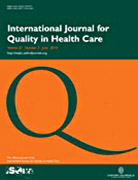 The purpose of this paper is to provide a basis for exploring the relationship between competition and quality in health care by delineating the different institutional economic and political contexts in which pro-competitive reform was conceived and carried out in different European countries. It begins by distinguishing between national health services and social insurance systems, suggesting that different kinds of system generate different kinds of problem. Different patterns of reform in Italy, Sweden and the UK, and in France and Germany are then reviewed in turn. The paper shows how, since the end of the long boom, health systems in Europe have been exposed to a set of economic, political and ideological pressures. The way these were brought to bear meant that governments in those countries with national health services were much more disposed to radical, pro-competitive reform than others. For them, competition represented a way of managing resource constraint in an increasingly complex and demanding political environment; ideas about quality were marginal to their purpose. The paper then explores the application of competition in different contexts, first among providers and then among purchasers, for which the UK and Germany serve as examples in turn. In each case, competition is only made effective by new forms of managerial direction. Across systems, competition appears less clearly associated with quality than with political control.
The purpose of this paper is to provide a basis for exploring the relationship between competition and quality in health care by delineating the different institutional economic and political contexts in which pro-competitive reform was conceived and carried out in different European countries. It begins by distinguishing between national health services and social insurance systems, suggesting that different kinds of system generate different kinds of problem. Different patterns of reform in Italy, Sweden and the UK, and in France and Germany are then reviewed in turn. The paper shows how, since the end of the long boom, health systems in Europe have been exposed to a set of economic, political and ideological pressures. The way these were brought to bear meant that governments in those countries with national health services were much more disposed to radical, pro-competitive reform than others. For them, competition represented a way of managing resource constraint in an increasingly complex and demanding political environment; ideas about quality were marginal to their purpose. The paper then explores the application of competition in different contexts, first among providers and then among purchasers, for which the UK and Germany serve as examples in turn. In each case, competition is only made effective by new forms of managerial direction. Across systems, competition appears less clearly associated with quality than with political control.
Source: International Journal for Quality in Health Care 10 (5) 395-401
